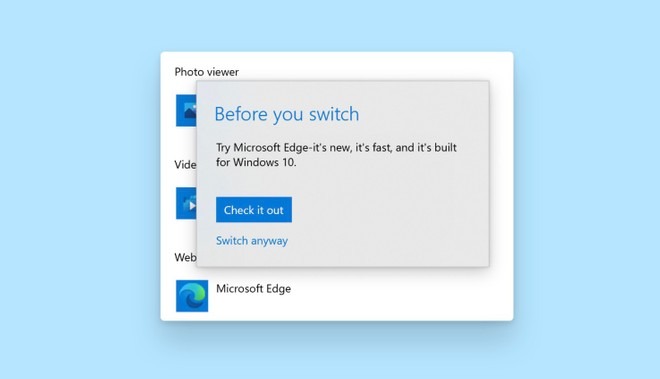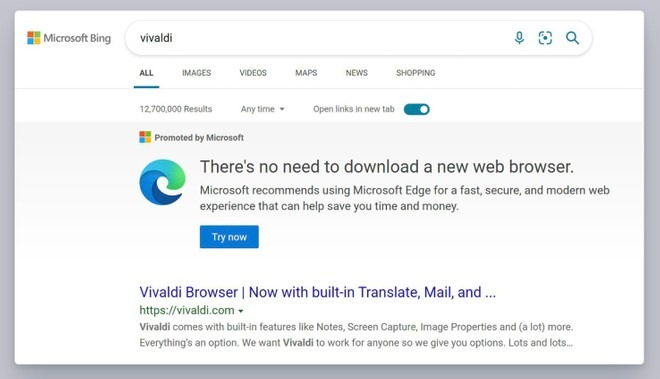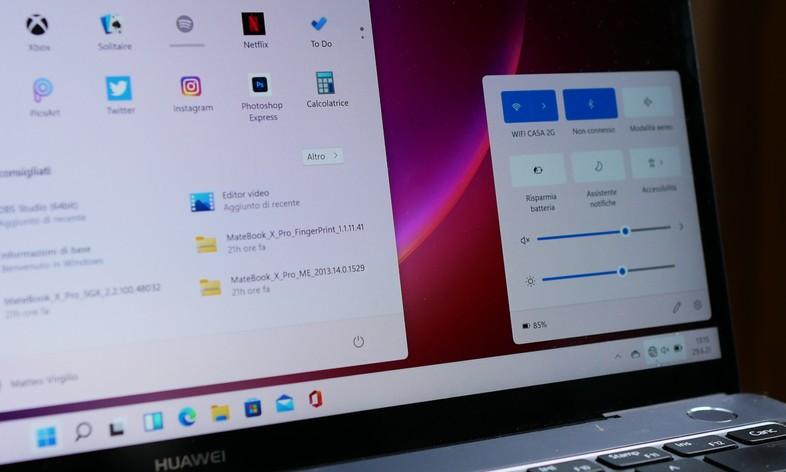The practices taken by Microsoft to promote its Edge browser to the detriment of competing solutions have returned to the headlines. It was to launch a new indictment against the Redmond house Jon von Tetzchner, CEO and co-founder of the Vivaldi browser. The executive opens his article recently published on the official website by underlining:
It is frustrating in 2021 to find Microsoft once again openly engaging in anti-competitive practices.
The intervention comes a few days after the report of the questionable strategy of the Redmond house that targeted the competitor Google and Chrome. But these practices, as he recalls Tetzchner, also apply when the Windows user decides to try additional browsers. In the case of Vivaldi, opening Edge and searching on Bing to find the link to the browser download (Vivaldi), the user is greeted by a message stating: there is no need to download a new browser… follow the advice to keep using Edge.

If the user still wants to continue using Vivaldi, he has to overcome a second obstacle: the pop-up message that tries to avoid setting a default browser other than Edge … (note: screenshot taken from Windows 10).
… and it does not end here, because if for some reason, subsequently, the user opens Edge he is again greeted by a message inviting him to use the recommended browser settings that coincide with choosing Microsoft Edge as the default browser.
Tetzchner remember that these are not unprecedented behaviors: In the early days of the Internet, Microsoft stifled competition from Netscape by integrating Internet Explorer into Windows and banning any Windows licensee from including a different browser. Favoring one’s products/services within one’s ecosystem is a practice also followed by other tech giants (think, for example, of Apple and the management of the App Store, or Google and the integration of its search engine in Android devices). These techniques are increasingly being scrutinized by antitrust authorities, but the second Tetzchner:

The US and the EU are quite concentrated on Google, Apple and Facebook. And for good reason. However, it is important not to forget Microsoft. While the focus is elsewhere, they are committed to exploiting this opportunity by making it more difficult for users to choose other browsers on Windows operating systems, which continue to dominate the PC market.
What users can concretely do to change the status quo? According to the co-founder of Vivaldi:
- disseminate this information through social networks
- ask Microsoft why it is so afraid of letting users choose the browser
- contact antitrust authorities to report anti-competitive practices
- continue to use a different browser despite the obstacles



